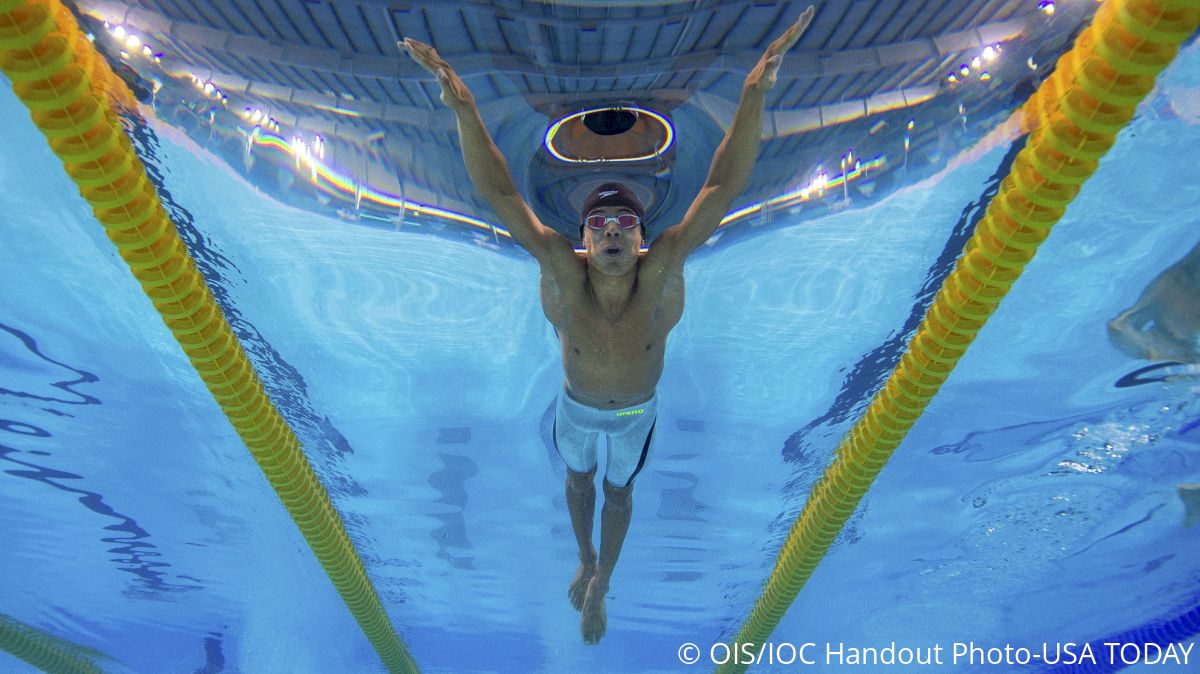Should Swimmers Be Subject To Underwater Officiating?
Should Swimmers Be Subject To Underwater Officiating?
As underwater cameras get more sophisticated, swimmer must ask themselves how they feel about underwater officiating.

Officiating has been a growing topic in the sport over the past 10 years as rule changes and advancements in underwater video capabilities have continued. Being disqualified as a kid in a summer league meet is one of the most soul-crushing things a young swimmer can face, but we’re not here to talk about the summer league days… We’re here to talk about the fastest one percent of the sport.
For a minute, I want you to think about how many ways you could possibly be disqualified in the 400 individual medley on the national stage. About 30 seconds into this process, you’ll realize how many details and small infractions officials have to look for during this four-minute race.
Below the national stage, you’ll typically have two judges pacing back and forth along the side of the pool each taking four swimmers each, two judges on each end of the pool watching the turns, and then a head judge or two doing the starting. This is no simple task for an official at this stage with how many different cues they’re looking for among all of the competitors.
As we move up to the national stage, the officiating gets a serious upgrade. Officials on each side of the pool, typically eight officials on each end of the pool looking at their individual athlete’s lane watching their every move, and underwater cameras putting their every move online for the world to see.
My question here isn’t about the officials outside of the pool, as I believe they have an incredibly challenging job in this sport deciphering what is intentional, not intentional, what warrants a DQ, and what does not. My question here is about what goes on underwater.
As the sport progresses, alongside the progression of technology, it’s my opinion that we need to be very careful in what we allow and what we don’t allow into the sport. What worries me is that we could end up in a situation where athletes are putting too much of a focus on playing within the rules rather than what the sports was founded on. That is, racing.
Now before anyone sends me an angry letter about how I shouldn’t condone cheating, I’m not. I 100 percent agree that disqualifications should and will take place moving forward, but what I don’t want is a Chase Kalisz or an Ella Eastin getting disqualified in prelims of the 400 IM at Olympic Trials for a questionable one-handed touch or strange undulation on a pull-out.
Should Swimmers Be Subject To Underwater Video Review?
— Kyle Sockwell (@kylesockwell) April 15, 2019
My opinion on the topic is—to put it simply—that yes, swimmers should be subject to underwater video review, BUT within reason. If there’s an obvious attempt to create an unfair competitive advantage that can be seen, yes, I think that’s fair. If someone’s left foot makes a weird movement that looks like it could be a second dolphin kick during a pullout and it never happens again, nor have we ever seen an athlete make a movement like that before, I don’t believe that warrants disqualification. On the flip side, I also believe that there should be a more well thought-out-process of appeals for a disqualification from an official when there’s reviewable video, but that’s for another article.
Swimming is an incredibly technical sport with a multitude of ways to have your swim and hard work wiped away with the raise of a hand. I truly hope we continue to judge the sport properly and stay away from a time where athletes focus more on not getting disqualified and can stay locked into the real reason the sport even exists.
As stated above, however, if video review will thwart attempts to take advantage of judges who have more than one swimmer to keep an eye on and 1,000 rules to keep in mind, we absolutely should figure out a reasonable way to better utilize the technology.